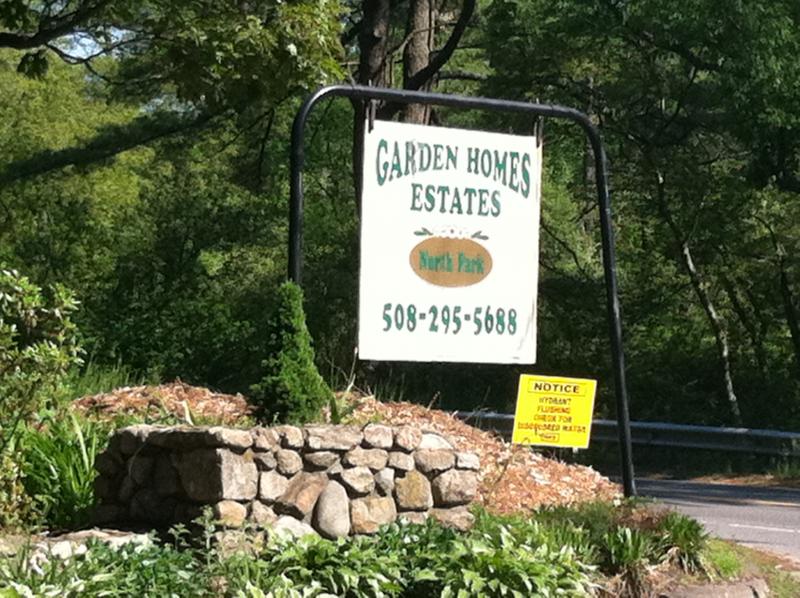State officials, mobile home park owner respond to nitrogen output concerns
At the request of the Coalition for Buzzards Bay, state environmental officials say they are looking into whether failed septic systems at Wareham's mobile home parks are dumping inadequately treated sewage in the town's waterways.
Meanwhile, mobile home park owner Jeff Hallaham said he has been getting no guidance from the town and worries that the costs associated with tying into the town sewer system "would be more than the park is worth."
On May 27, the Coalition sent a letter to the commissioner of the Massachusetts Department of Environmental Protection in an effort to reduce excess nitrogen in Wareham's waterways.
"We did receive the letter and are reviewing it," said Edmund Coletta, Acting Director of Public Affairs at the Department of Environmental Protection. "We certainly are aware there are a number of issues with these types of sites down on the Cape and the south coast. We are committed to investigate and respond to these sites as appropriate."
The letter stemmed from the Wareham Nitrogen Consensus Plan that was completed in June of 2010. The 41-page action plan contains a list of agreed-upon recommendations to clean up the nitrogen in Wareham’s water.
Mobile home parks were pointed out as a main source of nitrogen output in the plan. Due to their close proximity to the Agawam River, the mobile home parks that are a top priority are Garden Homes North and Garden Homes Pines, Great Hill Estates, and Royal Crest, according to Korrin Petersen, Senior Attorney for the Coalition for Buzzards Bay.
Wareham has more than 600 of 1,000 total mobile home park units that may be discharging wastewater without proper permits issued by the town or the state, according to Petersen. She said the mobile home parks would need to either tie in to the sewer system or construct treatment plants on-site to meet wastewater standards.
The Consensus Plan did not specifically address how the sewage generated should be treated.
Hallaham owns three mobile home parks including Garden Homes North. Two are sewered, while Garden Homes North is not. He said he is looking into what can be done for the long-term, but in the meantime has hired full-time maintenance workers to keep a close eye on the septic system.
"They're expensive and we're talking about mobile home parks. We are trying to keep the costs down. Anything I do that increases operating costs is detrimental to these families," Hallaham said.
Hallaham said the 144 families that live in Garden Homes North cannot afford the fees associated with tying into the town's sewer system. He said he is looking into the possible of installing new on-site septic systems.
Hallaham said he feels stuck without the guidance of public officials.
"What are they expecting I do?" he said. "I am not sure," he said. "I have attended Board of Health meetings and it seemed there was disagreement on what can be done. It is complicated. There is confusion."
Unlike toxic pollutants, nitrogen won’t give you cancer or cause birth defects or make anyone sick. In fact, nitrogen makes things grow. When nitrogen gets into waterways, however, algae and other “invasive species” grow like crazy.
In the process, the algae and their friends suck up a lot of oxygen, causing fish and shellfish to die. Much of the town's nitrogen pollution comes from incompletely treated septic waste.
The Consensus plan urged the Board of Selectmen and Board of Health to encourage action by the Department of Environmental Protection to ensure that all mobile home parks come into compliance with state rules for wastewater disposal.
While discussions about the matter have taken place at public meetings, no formal action has been taken by the town, according to Petersen.
Board of Selectmen Chair Walter Cruz said that was he not aware of any formal action being taken by the town since the Consensus Plan was released last year.















